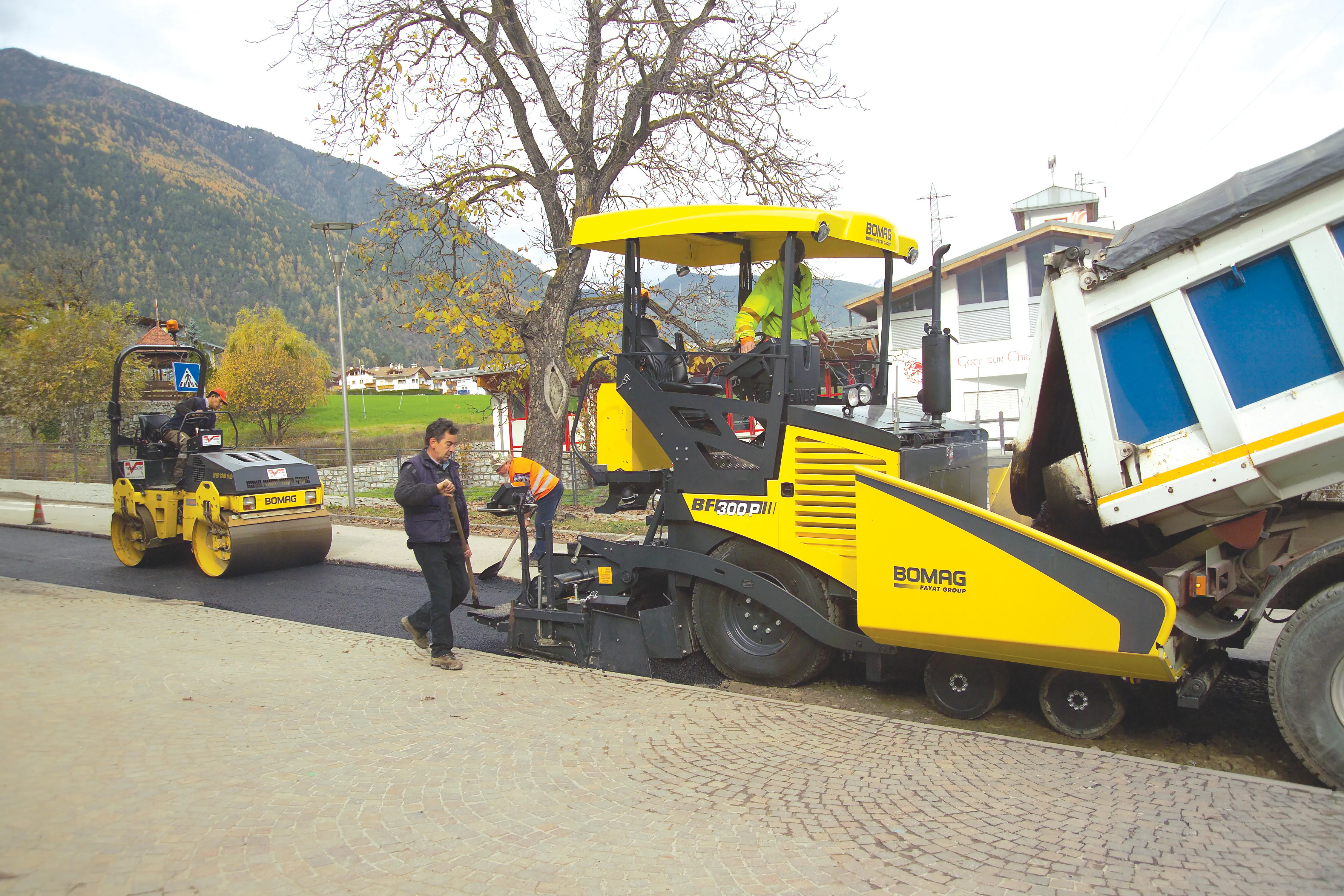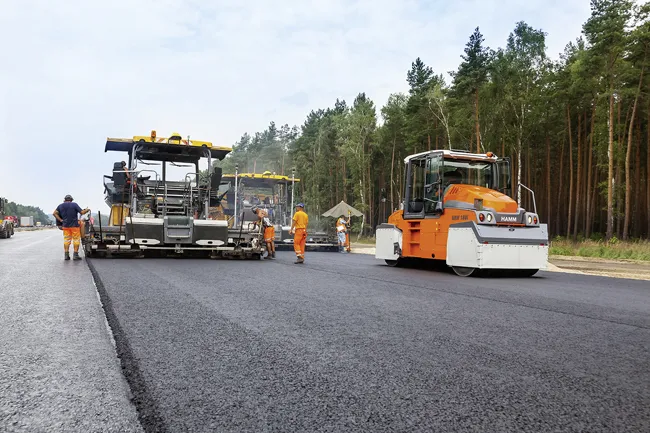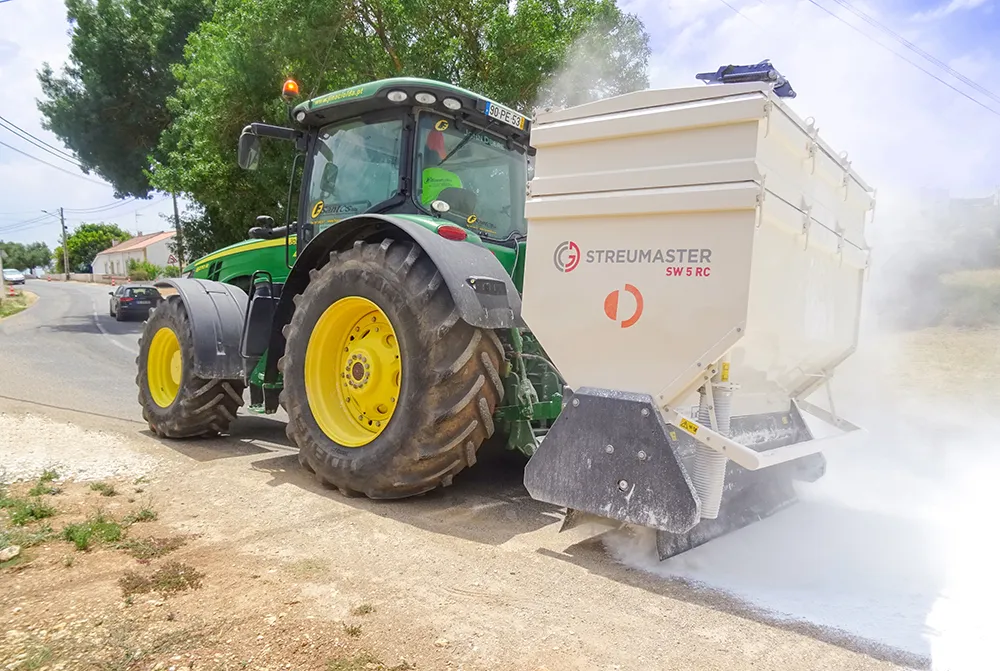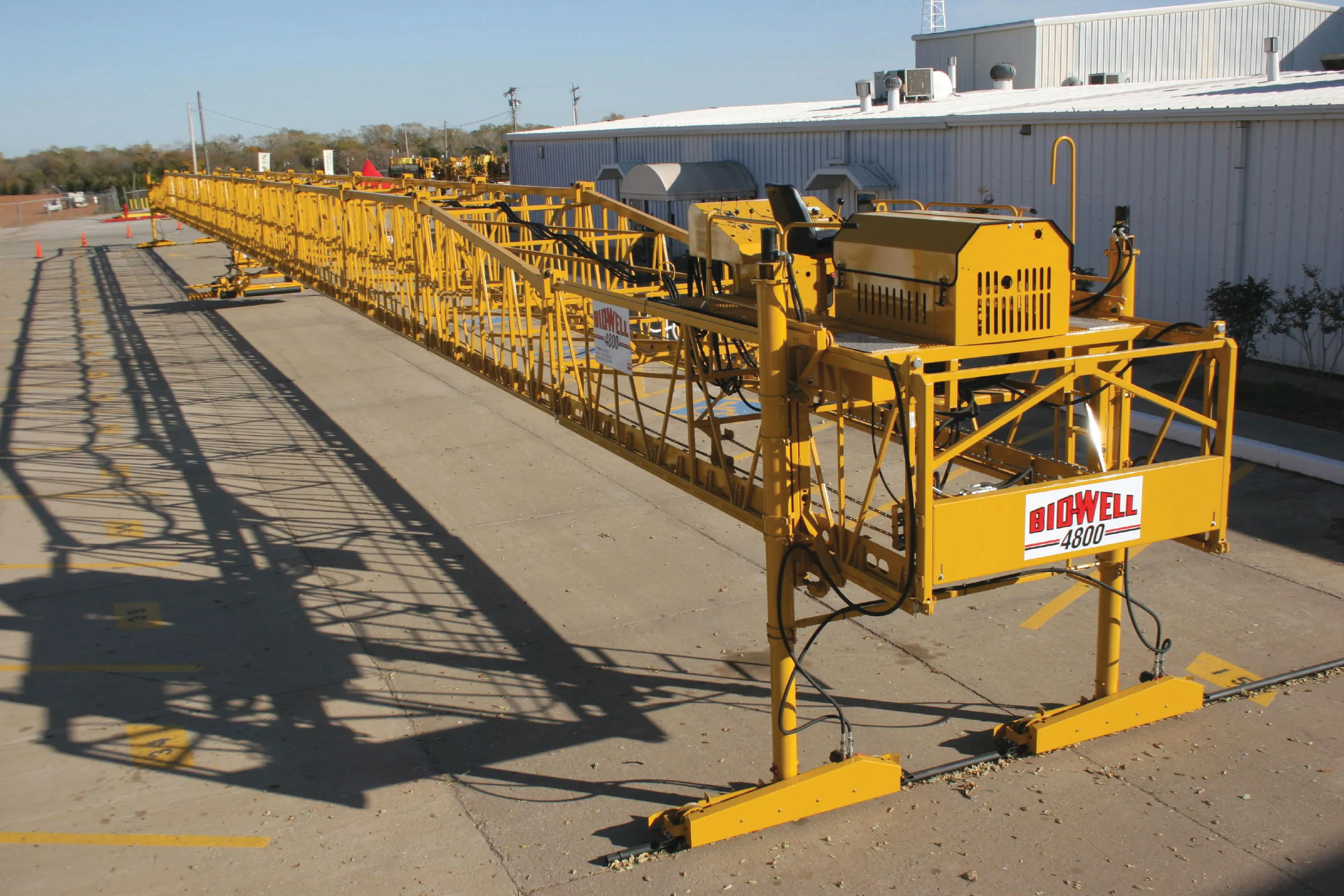Huge investments are being made in major road construction projects for North Africa. The biggest is the 'Autoroute Transmaghrébine' highway, which is also Africa's largest ever road construction project. Once complete, the highway will connect the Maghreb states of Morocco, Algeria, Tunisia and Libya and will have a total length of 3,200km.
February 22, 2012
Read time: 4 mins

Huge investments are being made in major road construction projects for North Africa. The biggest is the 'Autoroute Transmaghrébine' highway, which is also Africa's largest ever road construction project. Once complete, the highway will connect the Maghreb states of Morocco, Algeria, Tunisia and Libya and will have a total length of 3,200km. Construction is well underway in Algeria, where three construction consortia are building 1,200km of the highway at a total cost in excess of US$11 billion.
A substantial fleet of equipment has been supplied by the364 Wirtgen Group for this project, including 36 1194 Vögele pavers, 30 228 Hamm rollers and a number of Wirtgen slipform pavers that are installing the concrete crash barriers. Given the high ambient temperatures at times, the pavers are proving useful as they are designed to be operated in temperatures of up to 50ºC.
A multinational group of contractors is involved and there are three consortia handling the biggest portions of the work. The eastern section running from the Algerian city of Bordj Bou Arreridj to the border with Tunisia is being built by the Japanese consortium COJAAL. A section around Algiers is being built by Algerian construction firms ALTRO and COSIDER, while the rest of the stretch is being handled by the Chinese consortium CITIC-CRCC. However there are many other companies also involved in building bridges, tunnels and drainage systems.
The highway is being designed to carry an expected high traffic volume and the Algerian section features three lanes in each direction. To ensure that high standards for pavement quality are achieved in terms of resistance to deformation, all the Vögele SUPER pavers being used feature the manufacturer's high compaction screeds.
The entire 1,200km Algerian section of the highway is being designed with a 200mm thick base course of cement-treated gravelly sand followed by a 140mm bituminous bound base. A wearing course of asphaltic concrete that is 60-80mm thick is then used as the running surface.
The Japanese contractors working on the project are using 12 of the latest Vögele SUPER 2100-2 pavers, each of which is fitted with an AB600-2 TP2 Extending Screed, as well as four SUPER 1900-2 pavers that feature AB500-2 TP2 Extending Screeds. The Vögele pavers are building the three lanes in each direction to a width of 6.25m, hot to hot and are handling a 365km section in all. To provide accurate grade and slope control the Japanese contractors are using the Niveltronic Plus systems fitted to the Vögele machines as well that manufacturer's RoadScan sensors. Paving work is on schedule with a fleet of Hamm rollers being used to compact the surface. In all, the fleet comprises eight 12tonne HD120 tandem rollers and eight 18tonne GRW18 rubber-tyred rollers.
The Chinese consortium is also using Vögele SUPER 2100-2 pavers to build its section of the motorway, with 13 machines paving the full-road width. The SB250 fixed width screeds fitted to these SUPER 2100-2 machines are the TPI high compaction versions and have been set for 12.5m wide paving.
Meanwhile other jobs such as hard shoulder construction are being handled by three Vögele SUPER 1300-2 compact pavers and the Chinese paving teams are using the Niveltronic Plus system for grade and slope control, in combination with the Vögele Big MultiPlex Ski. This last unit features three sonic sensors attached to a beam that can scan an area of up to 13m and this is said to be versatile and well;-suited to levelling out irregularities in the base. This means that even without the use of tensioned wires, the specified grade and slope can be achieved accurately.
The Algerian contractors working around the capital city of Algiers are using four Vögele machines, two SUPER 1800-2 and two SUPER 1800-1 pavers. These machines are also equipped with high compaction screeds and to meet the tight deadline, the paving teams are using their pavers in 14 hour shifts.
To ensure good performance, the supply of spares and maintenance services have also had to be well organised and have been handled by local agent3027 Demdistral.
A substantial fleet of equipment has been supplied by the
A multinational group of contractors is involved and there are three consortia handling the biggest portions of the work. The eastern section running from the Algerian city of Bordj Bou Arreridj to the border with Tunisia is being built by the Japanese consortium COJAAL. A section around Algiers is being built by Algerian construction firms ALTRO and COSIDER, while the rest of the stretch is being handled by the Chinese consortium CITIC-CRCC. However there are many other companies also involved in building bridges, tunnels and drainage systems.
The highway is being designed to carry an expected high traffic volume and the Algerian section features three lanes in each direction. To ensure that high standards for pavement quality are achieved in terms of resistance to deformation, all the Vögele SUPER pavers being used feature the manufacturer's high compaction screeds.
The entire 1,200km Algerian section of the highway is being designed with a 200mm thick base course of cement-treated gravelly sand followed by a 140mm bituminous bound base. A wearing course of asphaltic concrete that is 60-80mm thick is then used as the running surface.
The Japanese contractors working on the project are using 12 of the latest Vögele SUPER 2100-2 pavers, each of which is fitted with an AB600-2 TP2 Extending Screed, as well as four SUPER 1900-2 pavers that feature AB500-2 TP2 Extending Screeds. The Vögele pavers are building the three lanes in each direction to a width of 6.25m, hot to hot and are handling a 365km section in all. To provide accurate grade and slope control the Japanese contractors are using the Niveltronic Plus systems fitted to the Vögele machines as well that manufacturer's RoadScan sensors. Paving work is on schedule with a fleet of Hamm rollers being used to compact the surface. In all, the fleet comprises eight 12tonne HD120 tandem rollers and eight 18tonne GRW18 rubber-tyred rollers.
The Chinese consortium is also using Vögele SUPER 2100-2 pavers to build its section of the motorway, with 13 machines paving the full-road width. The SB250 fixed width screeds fitted to these SUPER 2100-2 machines are the TPI high compaction versions and have been set for 12.5m wide paving.
Meanwhile other jobs such as hard shoulder construction are being handled by three Vögele SUPER 1300-2 compact pavers and the Chinese paving teams are using the Niveltronic Plus system for grade and slope control, in combination with the Vögele Big MultiPlex Ski. This last unit features three sonic sensors attached to a beam that can scan an area of up to 13m and this is said to be versatile and well;-suited to levelling out irregularities in the base. This means that even without the use of tensioned wires, the specified grade and slope can be achieved accurately.
The Algerian contractors working around the capital city of Algiers are using four Vögele machines, two SUPER 1800-2 and two SUPER 1800-1 pavers. These machines are also equipped with high compaction screeds and to meet the tight deadline, the paving teams are using their pavers in 14 hour shifts.
To ensure good performance, the supply of spares and maintenance services have also had to be well organised and have been handled by local agent









